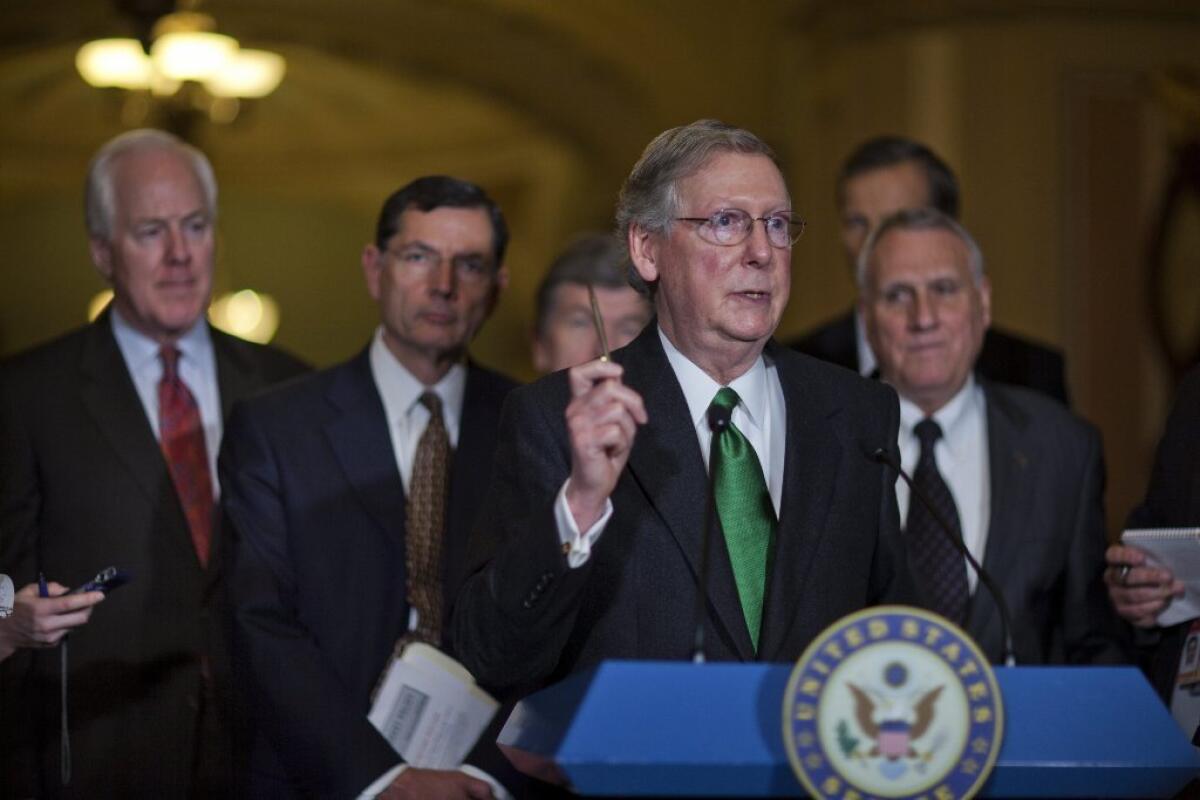âFiscal cliffâ? Letâs take the plunge

In February 2003, 450 economists, including 10 of the 24 living Nobel laureates in economics, made a public plea to President George W. Bush not to enact the recent tax cuts passed by Congress. These tax cuts, officially called the Jobs and Growth Tax Relief Reconciliation Act of 2003 but forever known as the Bush-era tax cuts, would not do what they promised, the economists argued. Instead, they said, the cuts would âworsen the budget deficit, increase inequality, decrease the ability of the U.S. government to fund essential services, while failing to produce economic growth.â
In the nearly 10 years that have elapsed since that plea, the budget deficit has ballooned, the gap between the wealthy and the middle class has expanded, and the American economy has spiraled into the greatest decline since the Depression. History has proved the 450 economists were correct. On Dec. 31, these same Bush-era tax cuts are set to expire. This, we are told in hushed or hysterical tones, could push the American economy off a âfiscal cliff.â
Am I missing something here? Can letting a failed tax policy die be such a bad thing?
Not really, says the Congressional Budget Office. In fact, if we let these tax rates expire, the debt would rise but the increases would be reduced by more than $7 trillion, or 70%, over the next 10 years. This reduction in the deficit would happen so fast, the CBO writes, that the gross domestic product could slow in the first six months of 2013 to 0.5% â probably causing a recession â before catching its breath in the second half of the year and starting to return to a respectable 2.4% growth.
On the other hand, the CBO warns, if Congress extends current policy, the deficit and debt will increase, slowing the economy in the long run and dramatically increasing interest costs.
Because of the deal Congress and the president made last year, letting the current tax rates expire will result in across-the-board budget reductions in many government programs (the dreaded âsequestrationâ). Still, there would be no decreases in Social Security, Medicaid and veterans benefits. Medicare could take a 2% hit, but itâs unclear that it would affect individualsâ benefits. Defense spending would take a big hit, but because of the wind-down in Afghanistan, some military leaders are actually asking for less than Congress is willing to shell out. Also, reduced military spending does not mean a weakened national defense. In the decade 1990-99, defense spending decreased by 1% a year.
So whoâs behind all the âfiscal cliffâ saber-rattling? Big earners and their friends, who despise the idea of the top tax rate going up from 35% to 39.6% (where it was during the 1990s, one of the most prosperous decades in this countryâs history), and any changes in the low, low, low capital gains tax. They started their scare campaign in February by calling the Dec. 31 deadline âtaxmaggedon,â which was clumsy and passe on arrival. It took that wordsmith Federal Reserve Chairman Ben Bernanke to coin âfiscal cliff,â and even though itâs more like a fiscal hill or a fiscal hurdle, the media loved âcliff.â Besides, by summer we had a presidential election to fill the talk shows, and neither major candidate was talking about cliffs.
So will Congress pass a comprehensive bill by New Yearâs Eve to avoid the fall from the fiscal cliff? In a pigâs eye. Whatâs much more likely is a weak agreement to continue the current tax cuts, kick the can down the road and let the next Congress figure it out.
Hereâs another idea: Letâs join hands and walk to the bottom of the cliff together. Itâs not very far down. The deficit and national debt will be reduced; Social Security, Medicaid and, for the most part, Medicare will go on unharmed; America will go back to tax rates that worked better than the cuts weâve been living with; and Congress will actually be forced to do something for a change: Republicans and Democrats will have to work together to repair those programs damaged by sequestration, rather than filibuster or chant talking points to make their way around the hard decisions.
Perhaps America is on the brink of a fiscal opportunity.
Jack Shakely is president emeritus of the California Community Foundation.
More to Read
A cure for the common opinion
Get thought-provoking perspectives with our weekly newsletter.
You may occasionally receive promotional content from the Los Angeles Times.










